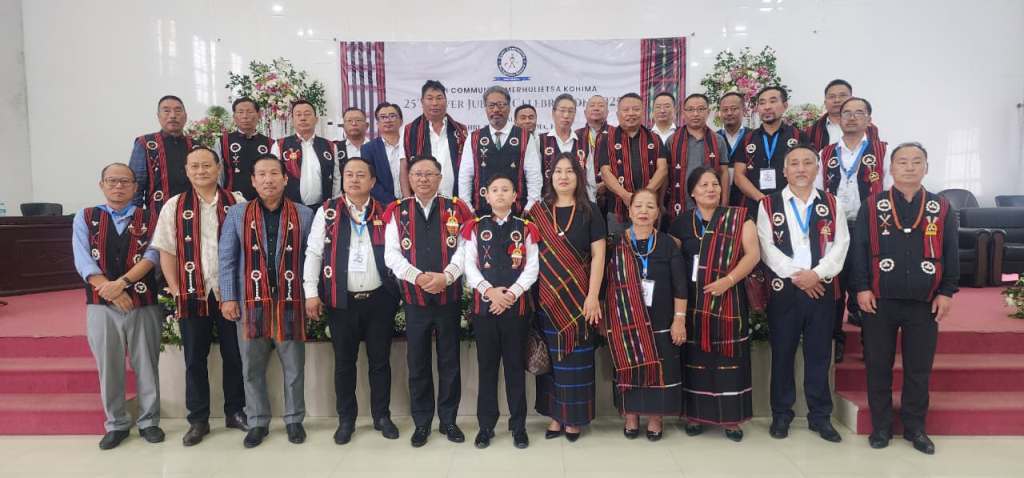Sumi Community Merhulietsa, Kohima, celebrates silver jubilee.
Published on Sep 13, 2025
By EMN
Share

DIMAPUR — The Sumi Community Merhulietsa, Kohima, marked its silver jubilee with grandeur on Saturday at Molu-Ki hall, Merhulietsa colony.
The event was attended by Y Kikheto Sema, Principal Secretary of Law & Justice, Fisheries & Aquatic Resources, as the special guest, an update stated.
Addressing the gathering, Kikheto stated that the essence of a jubilee is to “forgive and forget,” which paves the way for unity and peaceful coexistence. Acknowledging Merhulietsa as one of the smallest among Kohima’s 19 colonies, he urged its members to remain united, remember the pioneers who laid its foundation, and uphold the values of responsible citizenship.
Also read: Newman School in Tobu holds sales day programme
He reminded the community that a strong sense of belonging is essential, particularly while residing in the state capital. Highlighting the significant role of the Sumi community in the formation of Kohima district, he noted that the Sumi, being one of the largest Naga tribes, is bounded with 14 out of the 17 Naga tribes except Konyak, Phom and Khiamniungan, but are connected to all tribes through intermarriage and blood ties. “If we remain united and coexist peacefully with all other tribes, peace and tranquillity will prevail,” he added.
Reflecting on history, Kikheto recalled that during the colonial era, Nagaland was divided into the Kohima ilaqa, Mokokchung ilaqa, and the Tuensang NEFA, where the Sumi contributed significantly due to their central geographical position.
He highlighted that as early as 1907, Sumi Christians held congregations in Kohima Mission Church, and in 1921, with the permission of missionary JE Tanquist, they established their own church at Daklane in 1925.
This year, 2025, marks the centenary jubilee of the Sumi Church in Kohima.
He also announced that a combined Christmas celebration of all denominations of Sumis will be held in Kohima this year.
Citing further contributions, particularly by the Sumi Aphuyemi community, he said that between 1930 and 1939, they played an active role in building Kohima’s infrastructure.
He recalled how the community volunteered for three days of labour in earth cutting and stone breaking for the construction of the deputy commissioner’s office and the present Naga Hospital (initially planned as a school by the British) and also contributed to construction on Kohima High School, the present New Secretariat Complex (formerly a British airfield), public ground, Kohima Mission Centre and the Kohima–Dimapur road.
Speaking on the motto of the Sumi Community Merhulietsa, ‘Social upliftment,’ Kikheto explained that it refers to collective efforts aimed at improving the socio-economic conditions of disadvantaged groups through education, healthcare, economic opportunities, and justice.
Stressing that social justice is the need of the hour, he drew attention to the challenges faced by the Northern Sumis, who continue to struggle economically, politically and socially, without basic facilities.
He appealed to the community, civil society, and the church to extend support, and urged everyone to embrace the spirit of togetherness, reminding that wellness begins with all, while Illness begins alone.
Earlier in the programme, Pastor of SBCK, Khekavi Yeptho, led the opening prayer, while senior Pastor SABCK, Rev. Dr. Kiyeto Sema, unveiled the jubilee souvenir. The history of the Sumi Community Merhulietsa was presented by Vixepu Swu, former chairman of SCMRHK.